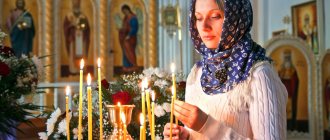Repeated
Wedding is one of the seven great sacraments of the Orthodox Church, a mystery that binds two destinies together. During this ceremony, the groom symbolizes Christ, and the bride symbolizes the Church. The oaths of love and fidelity given during the ceremony are sacred, and therefore divorce or debunking does not exist for the Orthodox Church.
The conditions under which the bishop will allow a second wedding are limited, requiring a personal petition and the provision of compelling evidence.
Reasons preventing the ceremony
There are other reasons that prevent participation in the ceremony. The following are not allowed to attend the sacrament:
- atheists and representatives of other faiths (an exception is possible for Catholics or Protestants, but only after a conversation with a priest and a promise that the children will grow up in the Orthodox tradition);
- people who have not officially formalized the breakup of their previous union or who have already been married three times (and even a civil union is considered);
- newlyweds who are blood or spiritual relatives to each other;
- couples who have not registered their relationship with the registry office;
- incompetent or minor;
- women over 60 and men over 70, since after this age childbearing is physically impossible (the rule has a large number of exceptions).
Who will be refused?
Before you start planning the ceremony itself, make sure that you will not be denied it. So, below are the reasons why a clergyman may not marry you:
- The engagement will not take place if you are blood relatives to each other, for example, a brother and sister, or spiritual godfathers.
- Father will not give the go-ahead to adherents of another religion, sect, as well as atheists and the unbaptized.
- If the age has not reached 18 years or has crossed the line of 60 years for a woman and 70 years for a man.
The rule regarding the older generation is often violated. Especially if the family has lived in an official marriage for a long time, the church will bless them in any case. - According to Christian customs, you can be married no more than three times.
- Those who already have three divorces behind them will also be denied the Sacrament.
- If you are married to one person and want to enter into a sacred union with another.
- The priest may refuse a couple whose age difference is too large.
- People who have taken a vow of celibacy and clergy will never have a wedding.
- In most cases, a church ritual will not take place if the lovers have not officially registered their relationship with the state - in the registry office.
Selecting a day according to the Orthodox calendar
When can you plan your wedding? It does not have to happen immediately after the painting at the registry office. Often married couples come to such a decision at an age, after many years of marriage, when there are children and even grandchildren, and feelings have long been tested by life’s adversities. The Church views this decision extremely positively, joyfully blessing a strong union at any age.
The sacrament is not performed every day. They do not get married on Tuesdays, Thursdays and Saturdays, so that the wedding night does not fall on fast days or Sundays. You cannot get engaged during Lent, important church holidays - the twelfths, great ones, temple holidays, during Maslenitsa, Easter and Christmastide.
Important! Brides should remember that during critical days women do not have the right to cross the threshold of the temple, which means they should also take into account their own calendar.
It is best to check the church calendar or consult with the priest before choosing a date.
How to hold a wedding in Lent
There are exceptional cases in which church authorities give permission for a wedding to take place during Easter week. For example, if a young man goes to war. But this reason is not a guarantee - everything depends on the decision of the bishop. You shouldn't really rely on it. Today there is no reason to break fast and get married on Easter.
If the newlyweds decide to get married and celebrate this event, then the feast should be as modest as possible. If two categories of people will be present at the wedding - those who observe fasting and those who do not observe fasting, it is necessary to prepare lenten and non-lenten dishes.
Tips for holding a wedding in Lent:
- Prepare two menus. One is classic, the other is for those who are fasting, so that no one feels left out.
- Discuss the event scenario in advance. Ask the host to conduct the celebration as calmly as possible, without competitions or vulgarities. Toasts and dancing can be left.
- Invite only close people. Do not invite those who have established themselves as lovers of drinking on any occasion.
- Place red wine and low-alcohol drinks on the table.
Dress code
In the church there is a certain dress code that must be observed by everyone present, not just newlyweds. Men enter the temple without a headdress, women, on the contrary, have their heads covered. It is obligatory to have crosses on the neck. These are the basic conditions.
For the bride
The bride should give preference to a chaste style of dress - the shoulders, neckline, and knees must be covered. Fully exposed arms are also undesirable, so it is better to choose an outfit with sleeves or add a cape to it. As a last resort, you can wear gloves, but remember that they will have to be removed before exchanging rings.
It is not necessary to use pure white for the dress and accessories; any light, pastel shade will do. You should avoid flashy red, acidic neon tones, as well as dark shades of brown, black or purple.
The bride can cover her head with a veil - in this case it is important that the accessory is attached high enough, on the top of the head, covering almost all the hair. Or choose a chastity scarf - an excellent option, presented in a variety of models - bolero, cape, scarf. Remember that according to church canons, only an innocent girl can wear a veil , which makes the use of this accessory inappropriate for pregnant brides or brides who already have children.
Important! A wedding dress should not be too tight, overly sexy, or pretentious, because the image of a bride is primarily associated with purity and purity.
Makeup is chosen to be calm and nude. You cannot paint your lips, even with colorless gloss. The fact is that you have to kiss crowns and images, and doing this with painted lips is simply indecent.
Another important point is decorations. There shouldn’t be a lot of them, and it’s better to avoid pretentious and luxurious ones altogether. No rings or rings are allowed on your hands , with the exception of a wedding ring if you are going to wear it with your wedding partner in a duet.
Choose simple shoes, without high heels, because you will have to stand motionless for almost an hour, and the witness will have to hold the crown above your head with outstretched arms.
For the groom
As for the groom and invited men, there are fewer rules for them. It is important that the outfit is formal, but not luxurious. A traditional, formal, dark-colored suit will do just fine.
Church is not a place for experimenting with your own appearance, so you should abandon unusual styles, acidic colors, and flashy details.
Preparation for the sacrament
Before the sacrament, be sure to visit the church where you are going to get married. It doesn't have to be the most luxurious cathedral in the city. Some couples, on the contrary, choose small rural parishes, full of comfort and grace.
Important! You should feel good and easy under the arches of the temple, joyful and calm.
No less important is the priest who is to perform the sacrament. Talk to the priest before the ceremony. This is necessary for him to confirm that the wedding is permitted, and for you - the priest will guide you through an exciting stage of life, so his personality must inspire trust.
If you are a church member, then the question of where to get married does not arise. The ceremony should be carried out in your church and with your confessor - this is the most correct decision. But it is still necessary to talk before the ceremony, confess, and take communion, because you should enter a new family life prepared.
Choosing a place
At one of the first stages, a temple is selected where the ceremony will take place. It does not have to be large and respectable; many, on the contrary, prefer a quiet, peaceful church somewhere in the countryside.
Advice. The chosen place should evoke only good feelings and emotions; if you don’t like something, then it’s better to continue your search.
There will also be a meeting and acquaintance with the priest who will conduct the cherished ritual. You will have an interview with him, during which he must make sure how important marriage is for the couple and she understands all its seriousness, and does not chase the ceremony as a beautiful and fashionable trend.
Father, in turn, should also instill in you the disposition and feeling of trusting him. He is obliged to tell in detail important details, without reproaching you if you do not know some rules and canons of the Orthodox Church. You can also consult with him about controversial issues, for example, your appearance, rings, a photo shoot in the temple, the best date, and so on.
If you often go to confession with a certain clergyman, you have known him for a long time and trust him, then it would be a great idea to have your wedding with him.
Attributes
In addition to the spiritual side of the issue, there is also a material one. The sacrament requires certain things that you must take with you. You can buy them in one special set or select each item separately.
You will need:
- images of the Savior and the Mother of God;
- wedding rings;
- towel;
- candles and handkerchiefs.
Icons
You will have to kiss the image in front of the altar, swearing an oath of eternal fidelity to each other. The bride holds the icon of the Mother of God and personifies the Church, the groom holds the icon of the Savior and personifies Christ.
It is best if you inherit the images from your parents. This way the symbol will be the brightest, most blessed, the most correct. But if the Orthodox tradition begins only with your family, it is not forbidden to buy new wedding icons.
Rings
Canonically, wedding rings are made from different metals. The groom brings gold, a symbol of the sun and masculinity, the bride brings silver, a sign of the moon and femininity.
During the sacrament, the newlyweds exchange rings three times, and as a result, the bride wears her husband’s gold ring, as his promise to always protect her, and the groom wears his wife’s silver ring, symbolizing her oath of eternal devotion and selfless love.
Wedding rings are a sign that, like the pectoral cross, cannot be removed throughout life. That is why you should not choose frilly, bright jewelry with large stones. You can decorate rings with engravings - most often with prayers, names of spouses, wishes, vows.
It is not forbidden to choose identical rings made of gold, silver or platinum, but other metals are prohibited. Instead of rings, wedding rings are also possible.
Important! A priest may consider luxurious multi-colored rings to be jewelry and refuse to place them on the altar for consecration.
Candles and towel
A towel is a pink or white towel. It should be large enough for both spouses to be able to stand on it. Often the edges of the towel are decorated with symbolic embroidery.
It is best to buy wedding candles in a church shop. If you are going to purchase them elsewhere, make sure that they are wax and specifically wedding ones. The bottom of the candle should be wrapped with a special scarf so that the wax does not drip onto the skin.
What to do with the attributes after?
According to tradition, all wedding symbols must be carefully preserved. You cannot throw them away or re-gift them.
The icons remain in the new family’s home, protecting the hearth. Wedding candles are lit during difficult childbirth or illness of children. The remaining attributes remain family heirlooms.
It’s worth mentioning separately about the wedding dress. It cannot be given, sold, or cut. But you can wear it again, for example, on a wedding anniversary.
Is it possible to get engaged
According to the current Constitution, religion and social activities are kept separate. In the registry office there are no prohibitions on painting during Lent. The lovers submit an application and, according to current legislation, get engaged on the appointed day. If the newlyweds simply get married without having a noisy feast, nothing bad will happen. In other cases, as soon as you start talking about a wedding during Lent, criticism from the older generation will immediately fall. Parents know for sure that they cannot get married at this time.
READ
Preparing for the wedding: from drawing up a plan to ordering and purchasing everything you need
When is it prohibited?
The church calendar has 4 multi-day fasts and 3 one-day fasts, and you also need to fast every Wednesday and Friday. You cannot have a wedding on the following days:
- Christmas post. November 28 - January 6. By the way, the New Year falls during Lent, but no one adheres to it. On New Year's Eve, people have fun, drink alcohol, have sex, and enjoy life.
- Great. It happens at different times every year. Depends on when Easter is. In 2022, you need to fast from March 2 to April 18.
- Petrov. June 24 - July 11.
- Uspensky. August 14 - 27.
During this period, it is not recommended to get married, get married, or have a wedding. At the same time, it is allowed to register a marriage at the registry office.
Pros and cons of the ceremony
There is one advantage - fewer weddings in the registry office. Our people are superstitious, so few people decide to attend a wedding ceremony. People think that by doing this they can bring trouble upon themselves. If there is even a drop of doubt, it is better to reschedule the date and wait for a favorable period.
Price
The church does not have a price list or a fixed price, so each couple leaves a donation in the amount that seems adequate to them. Poor families can be accommodated and get married for a nominal fee or free of charge.
As for the accepted donation amounts, they vary depending on the cathedral. A wedding in the Cathedral of Christ the Savior in Moscow or the Kazan Cathedral in St. Petersburg will cost approximately 10,000 rubles, in lesser-known parishes - from 500 to 5,000.
Should you fast?
Three days before the wedding, you should limit yourself to animal food and intimate relationships. This is done so that the young people tune in spiritually. On the wedding day itself, you should not eat, drink, or smoke from midnight, because in the morning you will have to attend the liturgy.
Is it possible to eat if you are in poor health? If you have medical contraindications or are afraid of fainting, then be sure to discuss this issue with the priest. The church makes concessions, and if you wish, you can drink sweet tea or yogurt before the ceremony.
Fasting before the wedding: what are the restrictions, what can you eat?
Before the wedding, it is advisable to fast for 3 days.
For three days before the wedding, the bride and groom organize a fast of two types: for the body (you can only eat lean food) and for the soul. These days you cannot eat fast food (meat, dairy products and eggs). Some priests advise not to eat fish dishes. You can eat raw and boiled vegetables, porridge with vegetable oil or with nuts, soups seasoned with vegetable oil, and fruits.
Spiritual fasting consists of not gossiping, not swearing and quarreling, not watching obscene films, not having sex. Instead of films and secular literature, you need to read spiritual books and the Gospel.
If you adhere to such truths, then fasting will be correct.
But not all people can fast. For example, if a person is sick or does heavy physical labor, he is given relief - the priest may allow dairy or fish dishes.
So, now we know when we can get married in church and how to fast.
What not to do after?
After the ceremony, you can celebrate such an important event, but you should not throw a merry feast with overly frank or loud entertainment. Karaoke, discos, and plenty of alcohol should be left for another occasion.
It is best to celebrate a bright day together with your loved one or in a small company of your closest and dearest, outdoors, in a cozy restaurant or at home.
It’s good if the chosen event is held in the Orthodox tradition. Humor and competitions are acceptable, but they should never be vulgar.
Signs
Such an important sacrament as a wedding has acquired signs and superstitions over the centuries:
- Under no circumstances should the groom see the bride in a dress before the wedding. Buying an outfit together is also prohibited;
- Letting someone, even those closest to you, try on a wedding dress means allowing you to try on your own happiness;
- For bottomless marital love, take an oath of fidelity before the wedding, speaking into the well;
- It’s a bad sign if one of the wedding candles goes out early - this means that the person holding it will leave the world before their spouse;
- During the ceremony, newlyweds should not look into each other's eyes, then family life will be cloudless;
- A good omen is snow falling the night before the wedding. It symbolizes a new, clean, bright life;
- Smooth wedding rings promise a smooth family life , but stones, engraving, roughness are a variety of problems;
- Tucking, or even more so breaking, a heel during the ceremony will make your entire family life lame, so it is better to choose the most comfortable shoes;
- Part of the bride’s outfit, for example, a scarf, should be taken from a loved one - then friends will always come to the aid of the family.
Important! How to treat signs, everyone decides for themselves. The Orthodox Church views such superstitions with skepticism, but folk wisdom often contains a rational grain.
Is it possible to eat before the wedding?
As far as I know, church rules do not provide for strict fasting, such as, for example, the Eucharistic fast before the sacrament of Communion. But confessing and receiving communion before the Wedding is a very pious and important tradition.
You shouldn’t overeat before the sacrament itself, and purely for practical reasons. Firstly, it will be difficult to stand with a full belly. Secondly, belching and other processes of the stomach will not decorate the Wedding in any way. And, thirdly, as popular wisdom says: a full belly is deaf to prayer.










